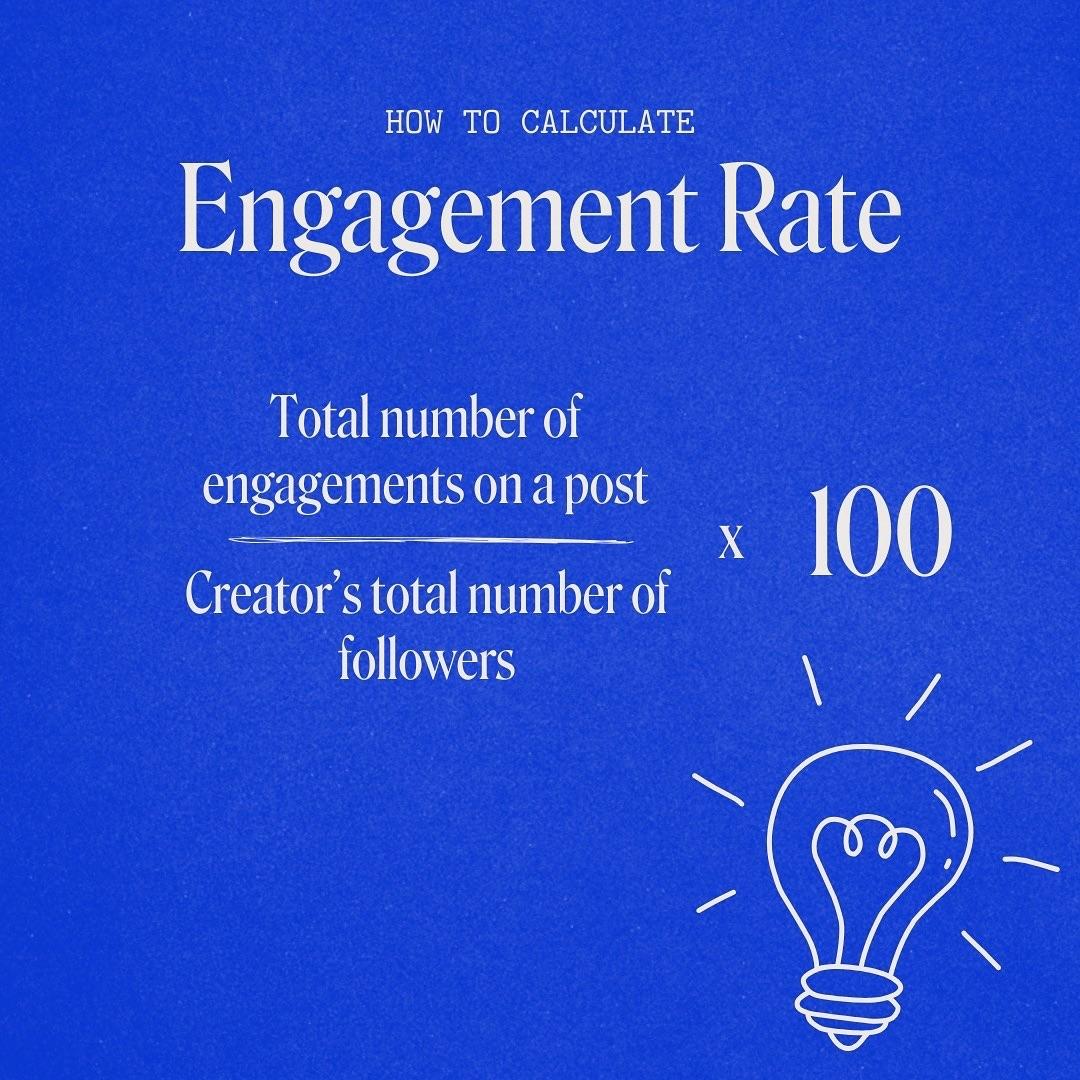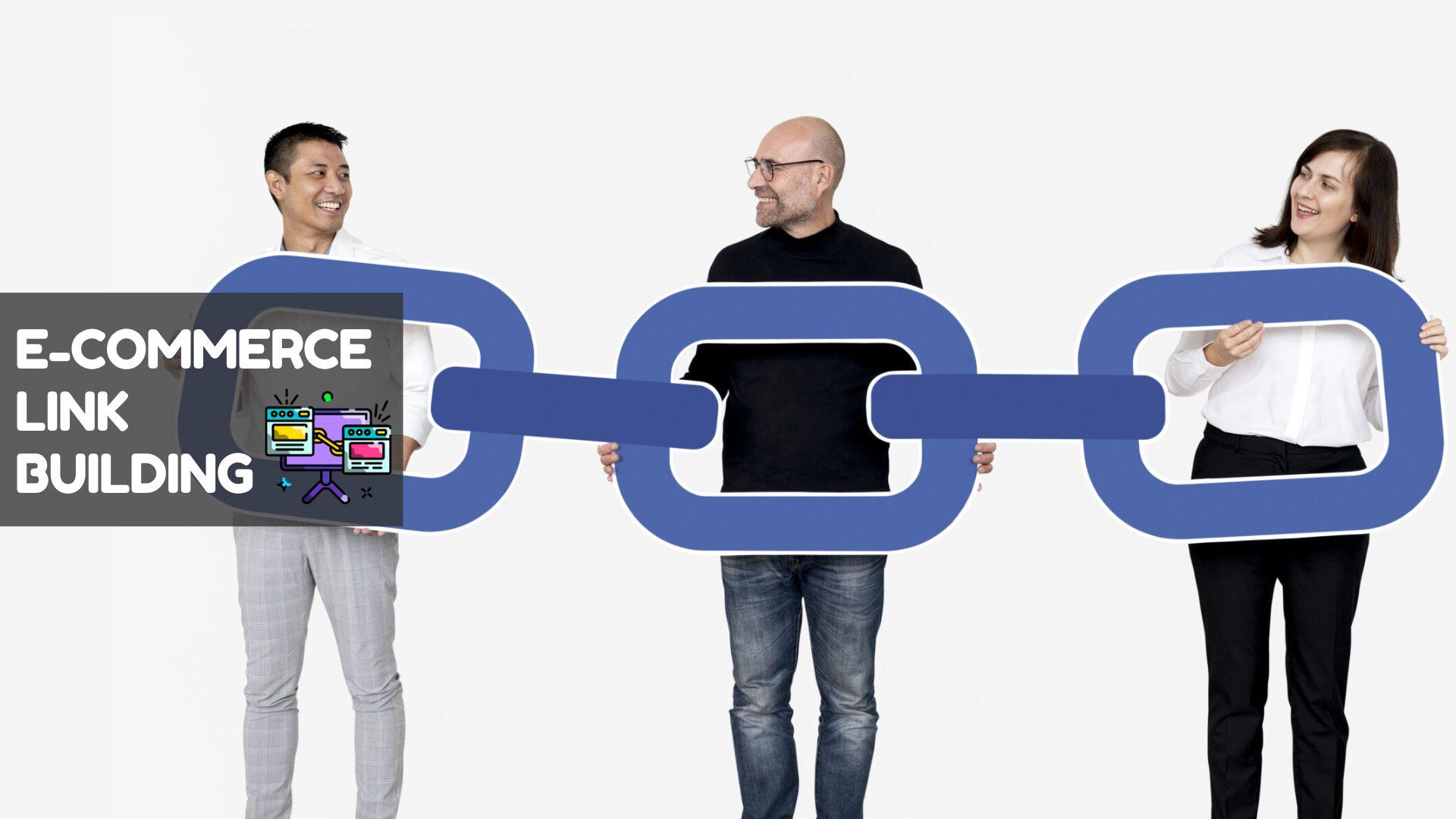
Unlocking E-commerce Success: 9 Link Building Tactics to Boost Your Rankings
Hey there, fellow e-commerce enthusiast! If you’ve ever felt like your online store is just floating in a vast sea of competition, you’re not alone. The digital marketplace is bustling, and standing out requires more than just great products and eye-catching visuals. Enter link building—your secret weapon for climbing the search engine rankings and driving organic traffic to your site. But let’s be real: not all link building tactics are created equal. Some are effective, while others can lead you down a rabbit hole of wasted effort and minimal results.
In this article, we’re diving into 9 e-commerce link building tactics that actually work to improve your rankings. These strategies are not only practical but also easy to implement, whether you’re a seasoned pro or just starting out. Get ready to elevate your online presence, attract more customers, and watch your sales soar! Let’s jump in and discover how you can harness the power of link building to give your e-commerce business the boost it deserves.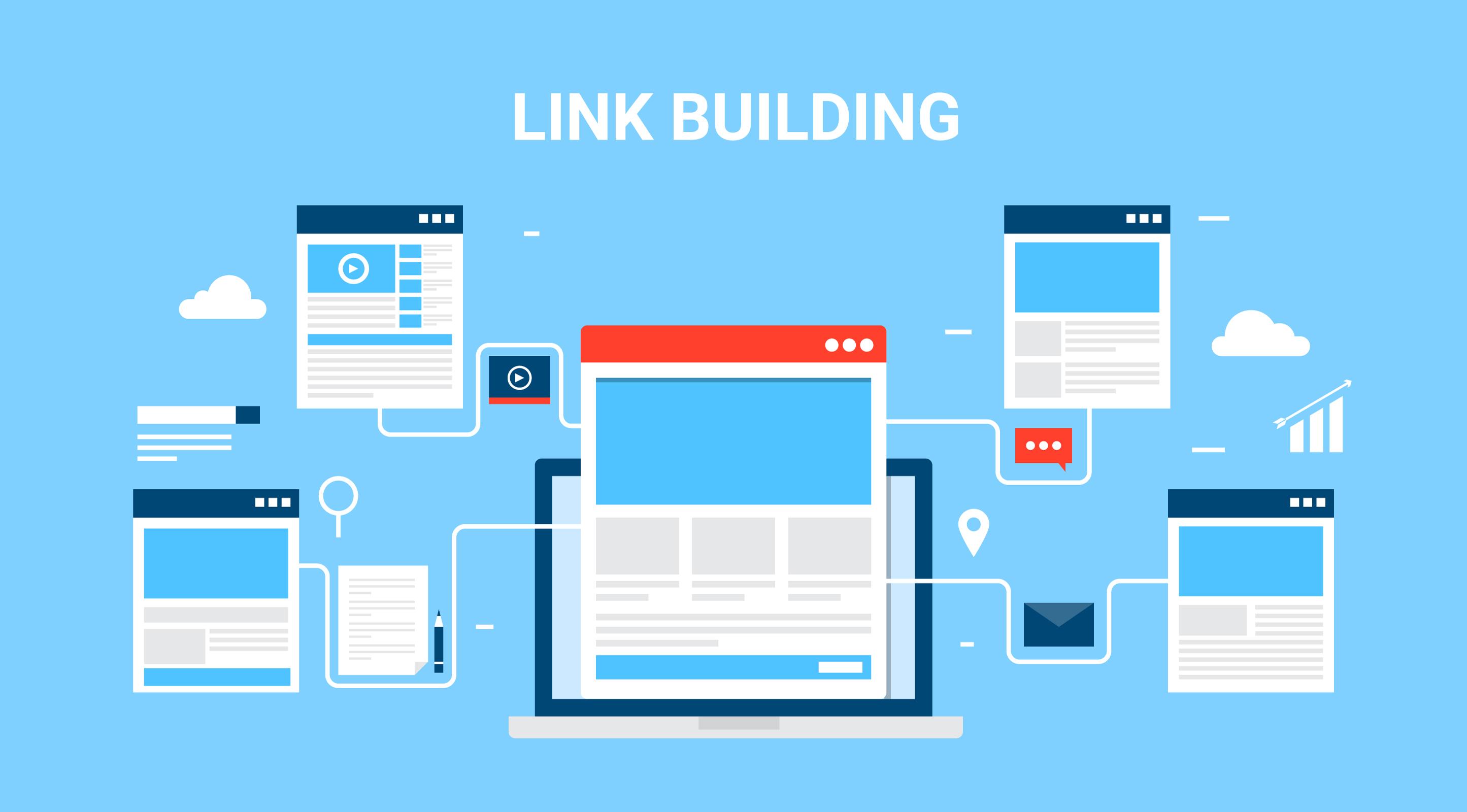
Understanding the Importance of Link Building for E-commerce Success
When it comes to e-commerce, having a stellar website is just the beginning. The path to online success is paved with quality links that direct traffic to your site. Link building is not merely a strategy but a critical component that can elevate your e-commerce store’s visibility and credibility. In this competitive landscape, understanding how to effectively implement link building tactics can set you apart from the competition.
Why is Link Building Essential? We often hear about search engine optimization (SEO) and its importance, but link building is a key player in this arena. Search engines like Google utilize links as a way to gauge the authority and relevance of your website. The more high-quality backlinks you have, the more likely your site will rank higher in search results. This is crucial for e-commerce businesses, as higher rankings lead to increased visibility, which translates to more potential sales.
Building links isn’t just about numbers; it’s about quality. Links from reputable sites within your niche can significantly boost your domain authority. When your website is linked to by respected sources, it sends a signal to search engines that your content is valuable and trustworthy. This trust can result in higher rankings and ultimately more conversions.
Effective Link Building Tactics:
- Guest Blogging: Contributing articles to reputable blogs in your niche not only helps build backlinks but also positions you as an authority in your field.
- Influencer Collaborations: Partnering with influencers can amplify your reach and create natural backlinks to your site.
- Content Marketing: Creating high-quality, shareable content such as infographics and how-to guides encourages others to link back to your site.
- Broken Link Building: Find broken links on other websites and suggest your content as a replacement. This method is a win-win for both parties.
- Product Reviews: Sending your products to bloggers for reviews can generate valuable backlinks and drive targeted traffic.
In addition to these tactics, consider implementing a strategic outreach plan. Building relationships with other site owners can lead to organic backlink opportunities. Personalized emails that highlight the value of your content can open doors to collaborations that benefit both parties. Remember, the goal is not just to gain links but to foster a community within your industry.
Measuring Success: Tracking the effectiveness of your link building efforts is crucial. Keep an eye on metrics such as:
| Metric | Importance |
|---|---|
| Domain Authority | Shows the overall strength of your website. |
| Referral Traffic | Indicates how many visitors come from your backlinks. |
| Keyword Rankings | Tracks your position in search results for targeted keywords. |
| Conversion Rate | Measures how many visitors make a purchase. |
Link building for e-commerce is about creating a solid foundation for your online store. The more high-quality links you earn, the more robust your search engine presence becomes. So roll up your sleeves and start implementing these tactics. Your e-commerce success story may just be a few links away!
Identifying Your Target Audience for Effective Link Outreach
When embarking on a link outreach campaign, one of the most crucial steps is to identify who exactly you want to reach. Understanding your target audience can significantly enhance the effectiveness of your efforts. Start by analyzing your current customer base. Look at demographic data such as age, gender, location, and purchasing behavior. This information will provide a clearer picture of who is engaging with your brand.
Next, consider the interests and pain points of your audience. What challenges do they face that your products can solve? Create detailed customer personas that encapsulate these aspects. Each persona should include:
- Name: Give your persona a fictional name for easy reference.
- Demographics: Age, income, education, and location.
- Interests: Hobbies, favorite websites, and social media platforms.
- Challenges: Common problems or needs related to your e-commerce offerings.
Once you have a solid grasp on your audience’s characteristics, it’s time to identify where they spend their time online. Understanding their preferred platforms can help tailor your outreach efforts. Use tools like Google Analytics or social media insights to determine which channels are most effective for your target demographic.
In addition to identifying platforms, research relevant websites and blogs that your audience frequents. Look for sites that align with your brand values and that also cater to your target demographic. Consider creating a spreadsheet to keep track of these potential outreach targets, including:
| Website/Blog | Audience Type | Contact Information |
|---|---|---|
| ExampleSite1.com | Tech Enthusiasts | [email protected] |
| ExampleSite2.com | Fashion Lovers | [email protected] |
| ExampleSite3.com | Home Decor Aficionados | [email protected] |
Additionally, leverage social media to engage with your audience. Participate in relevant discussions, join groups, and share valuable content. This will not only increase visibility but also help you build relationships with influential figures in your niche. The more you understand your audience, the more effectively you can communicate your value proposition when reaching out for links.
don’t forget to evaluate the impact of your outreach efforts. Monitor metrics such as referral traffic, engagement rates, and conversion rates from your link-building initiatives. This data will help you refine your targeting and approach over time, ensuring that your outreach is always aligned with your audience’s evolving preferences and needs.
Creating High-Quality Content That Naturally Attracts Links
Creating content that not only engages your target audience but also attracts backlinks requires a strategic approach. First and foremost, focus on value. Your content should solve a problem or provide insightful information that your audience is actively searching for. When you create resources that are genuinely helpful, other sites will naturally want to link to them.
One effective strategy is to develop comprehensive guides or how-to articles. These should cover topics in-depth, making them the go-to resource for readers seeking knowledge. For example, if you sell outdoor gear, consider a detailed guide on “How to Choose the Right Camping Equipment.” Include practical tips, checklists, and even personal anecdotes to enhance relatability and keep readers engaged.
Don’t underestimate the power of visual content. Infographics, charts, and videos are not only more engaging but also more shareable. When you present complex information visually, it becomes easier for others to digest and, importantly, link to. Consider creating infographics that summarize statistics relevant to your industry or visually represent a step-by-step process. This type of content is highly likely to get shared across social media and linked back to from various blogs and websites.
User-generated content is another fantastic way to build links organically. Encourage your customers to share their experiences with your products through reviews, testimonials, or social media posts. You can create a dedicated section on your website to showcase this content, which adds authenticity and encourages others to link back to your site as they reference real-life user experiences.
Furthermore, don’t shy away from collaborating with influencers or industry experts. When you partner with someone who has an established audience, you can tap into their network. Co-create content like guest blog posts, interviews, or joint webinars. This not only provides value but also increases your chances of getting backlinks from their audience, as they will likely share the content with their followers.
Consider also implementing data-driven content. Conduct original research or surveys within your niche and share the findings in a well-organized format. Data-backed articles tend to attract attention and can become a cornerstone resource in your field. When others reference your findings, they will link back to your original article, enhancing your domain authority over time.
Lastly, always ensure that your content is optimized for SEO. Utilize relevant keywords throughout your articles, but do so naturally. The key is to make your content friendly for search engines without compromising readability. This balance will help your content rank higher and increase its visibility, which can lead to more backlinks as more people discover and share your work.
Leveraging Guest Blogging to Expand Your Brand’s Reach
Guest blogging is not just a way to share your expertise; it’s a strategic tool for enhancing your brand’s visibility and authority in the crowded e-commerce landscape. By collaborating with well-established blogs, you can tap into their audience, driving traffic back to your site while building essential backlinks.
When you contribute high-quality content to relevant blogs, you create a win-win situation. The host blog gains valuable content, and you gain exposure to a fresh audience. Here are some benefits to consider:
- Increased Brand Awareness: As your name appears on reputable platforms, more potential customers become familiar with your brand.
- Improved SEO: Each guest post serves as a backlink to your site, boosting your domain authority and improving search rankings.
- Networking Opportunities: Collaborating with other bloggers fosters relationships that can lead to further opportunities.
- Establishing Authority: By sharing your unique insights, you position yourself as an expert in your niche.
To maximize the impact of your guest blogging efforts, it’s crucial to approach it strategically. Here are some actionable tips:
- Research Your Target Blogs: Look for blogs that align with your brand and have a solid readership.
- Pitch Unique Ideas: Tailor your content suggestions to fit the blog’s audience, providing fresh angles on relevant topics.
- Promote Your Posts: Once published, actively share your guest blog on your social media channels and email newsletters to drive traffic.
- Engage with Comments: Respond to comments on your guest post to foster engagement and show your commitment to the topic.
Furthermore, utilizing an organized approach to monitor your guest blogging efforts can yield even better results. Consider maintaining a simple table to track your submissions and outcomes:
| Blog Name | Submission Date | Status | Link |
|---|---|---|---|
| Example Blog A | 2023-01-15 | Published | View Post |
| Example Blog B | 2023-02-10 | Accepted | View Post |
| Example Blog C | 2023-03-05 | Pending | N/A |
By leveraging guest blogging, you can significantly expand your brand’s reach and enhance your online footprint. The key is to focus on quality over quantity, ensuring that every post aligns with your brand values and audience interests. In doing so, you won’t just build links; you’ll forge meaningful connections in the e-commerce space that will pay dividends in the long run.
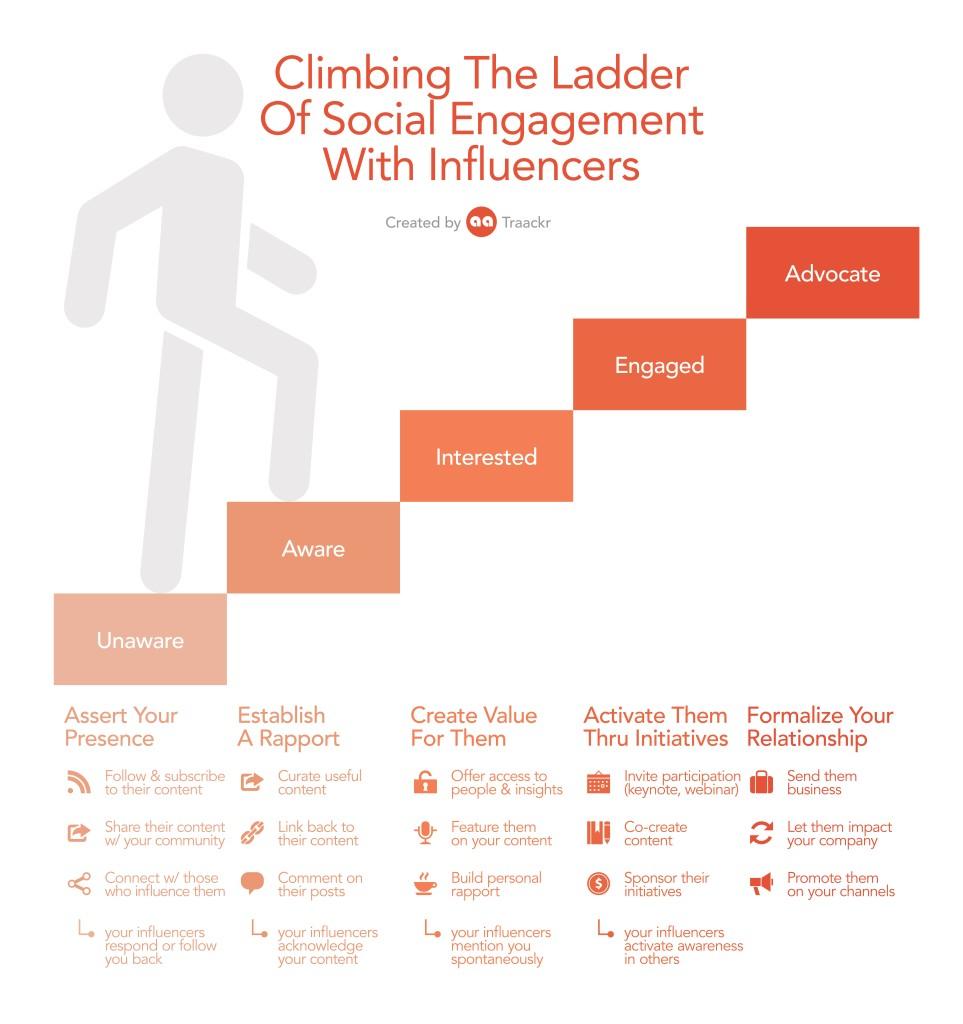
Building Relationships with Influencers for Authentic Backlinks
When it comes to securing high-quality backlinks, forging connections with influencers in your niche can be a game-changer. By collaborating with these individuals, you tap into their established credibility and audience, which can lead to authentic links that not only boost your SEO but also enhance your brand’s visibility.
To effectively build relationships with influencers, start by identifying those who align with your brand values and target audience. This means looking for:
- Relevance: Ensure they operate in your niche or industry.
- Engagement: Check their engagement rates and how they interact with their followers.
- Content Quality: Assess the type of content they create and its alignment with your brand.
Once you’ve identified potential influencers, the next step is to engage with them genuinely. Here are some strategies to consider:
- Follow and Interact: Start by following them on social media and engaging with their content. Comment thoughtfully on their posts or share their work to show your support.
- Personalized Outreach: When reaching out, make your message personal. Reference specific content of theirs that you appreciate, and explain why you think a collaboration could be beneficial.
- Offer Value: Consider what you can bring to the table. Whether it’s a product sample, exclusive access, or even a guest post opportunity, emphasize the mutual benefits of your partnership.
Moreover, authenticity is key in influencer partnerships. Instead of merely seeking backlinks, cultivate a relationship based on shared interests and values. This can lead to more organic promotion of your content and, ultimately, backlinks that are perceived as more credible by search engines. Building a rapport can also open doors to ongoing collaborations, providing a steady stream of backlink opportunities.
To measure the efficacy of your influencer relationships, keep track of the backlinks generated and their quality. Consider using a simple table to organize your findings:
| Influencer Name | Website | Type of Collaboration | Backlink Quality |
|---|---|---|---|
| Jane Doe | janedoe.com | Guest Post | High |
| John Smith | johnsmith.com | Social Share | Medium |
| Emily Johnson | emilyj.com | Product Review | High |
Remember, the goal is to create a relationship that goes beyond a single backlink. By nurturing these connections, you can create a network of advocates who are eager to promote your brand, leading to sustainable growth in your online presence.

Utilizing Social Media to Boost Link Visibility and Engagement
In today’s digital landscape, leveraging social media is more than just a trend; it’s an essential component of any successful e-commerce strategy. To enhance the visibility of your links and foster engagement, consider these effective tactics:
- Shareable Content: Create compelling, shareable content that encourages your audience to link back to your site. This could be infographics, engaging videos, or blog posts that resonate with your target demographic.
- Influencer Collaborations: Partner with influencers in your niche. When they share your content, it not only drives traffic but also enhances your credibility. Their followers are likely to trust their recommendations, increasing the chance of acquiring quality backlinks.
- Social Media Contests: Organize contests that require participants to share your links as part of their entry. This not only boosts visibility but also encourages user-generated content, creating a buzz around your brand.
- Engage with Your Audience: Respond to comments and messages promptly. Building a community around your brand fosters loyalty, and happy customers are more likely to share your links with their networks.
Another tactic involves utilizing social media groups and forums related to your industry. Join these groups to share your expertise and subtly incorporate your links into discussions when appropriate. This helps position your brand as an authority while driving traffic back to your site.
To maximize your reach, consider using a mix of different social media platforms. Each platform has its own strengths; for instance:
| Platform | Strengths |
|---|---|
| Wide audience and effective for community building | |
| Visual storytelling and high engagement rates | |
| Real-time updates and trending topics | |
| Professional networking and B2B opportunities |
Lastly, track your social media performance. Utilize analytics tools to monitor which types of posts generate the most engagement and links. By understanding your audience’s preferences, you can refine your strategies and create more targeted content that resonates with them.
Incorporating these strategies into your e-commerce link building efforts not only amplifies your link visibility but also cultivates a loyal customer base eager to engage with your brand. Remember, the goal is to create a two-way conversation that enhances the overall online experience for your audience.
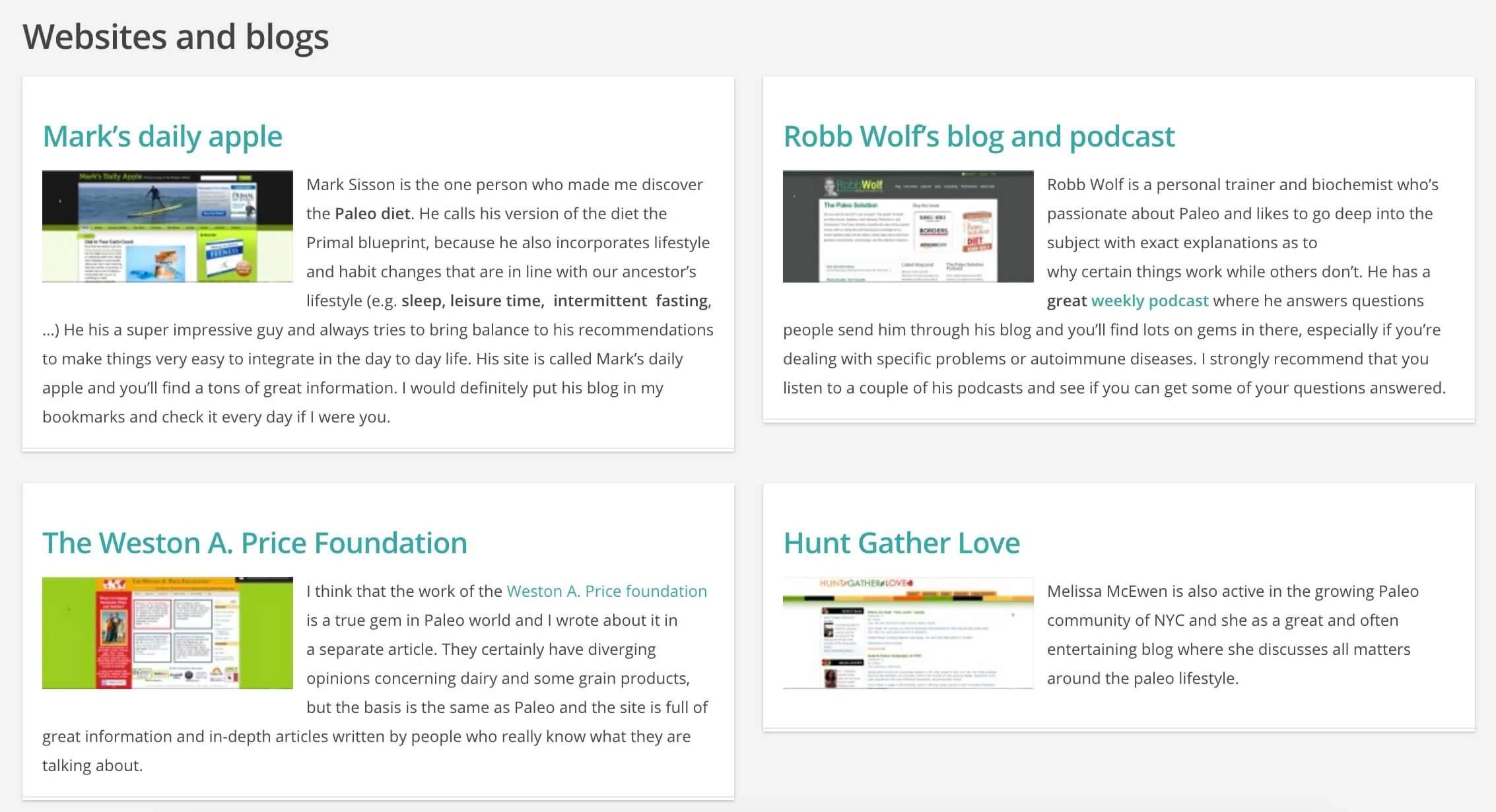
Crafting Compelling Resource Pages That Earn Links
Creating resource pages that attract links isn’t just about gathering information; it’s about curating valuable content that serves a purpose. To achieve this, you should focus on what your audience genuinely needs. Consider common pain points in your niche and provide solutions through well-researched content. Think about topics like:
- How-to guides that simplify complex processes.
- Comprehensive lists of tools or resources that can help your audience.
- Case studies that showcase successful strategies or practices.
Next, it’s crucial to present your information in an engaging and visually appealing way. Use a mix of text, images, and videos to break down content into digestible sections. A well-structured resource page that includes infographics or interactive elements can boost user engagement significantly. Also, consider using tables to organize facts or comparisons effectively. Here’s a quick example:
| Resource Type | Description | Benefits |
|---|---|---|
| Guide | In-depth instruction on a relevant topic | Establishes authority, resourceful |
| Tools List | A curated list of useful tools | Helps users save time, encourages shares |
| Case Study | Real-world example of success | Builds trust, demonstrates effectiveness |
Once you’ve developed your resource page, promote it strategically. Share it on social media and connect with influencers in your niche who might find your content valuable. A simple outreach email can go a long way. When you reach out, make sure to:
- Personalize your message to the recipient.
- Highlight how your resource can benefit their audience.
- Include a link to your page for easy access.
Don’t forget about SEO. Optimize your resource page for relevant keywords but keep the content readable. Use header tags effectively, include internal links to related content, and ensure that your page is mobile-friendly. The more accessible and searchable your resource page, the more likely it is to attract backlinks.
Lastly, update your resource pages regularly. Information can quickly become outdated, especially in the fast-paced world of e-commerce. By keeping your content fresh, you not only maintain its value but also encourage return visits and continued sharing. This approach signals to search engines that your content is relevant, which can help boost your rankings over time.
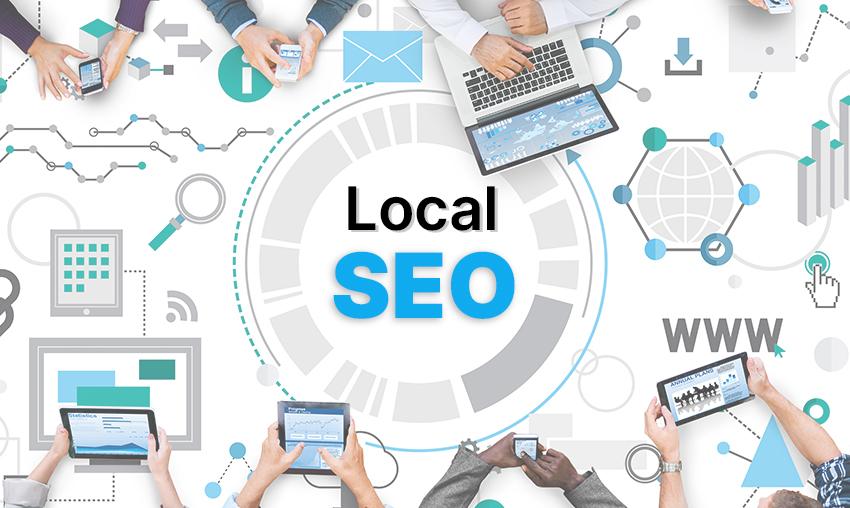
Exploring the Power of Local SEO for E-commerce Link Opportunities
When it comes to enhancing your e-commerce site’s visibility, tapping into local SEO can be a game changer. This strategy not only helps you attract nearby customers but also opens up a treasure trove of link-building opportunities that can significantly boost your rankings. Here’s how you can leverage local SEO for effective link building.
First and foremost, claim and optimize your Google My Business listing. This is your digital storefront, and optimizing it ensures you appear in local search results. A well-optimized listing can lead to customer interactions, reviews, and, importantly, backlinks from local blogs and news websites that reference your business as a trusted local resource.
Next, consider collaborating with local influencers. These individuals have a dedicated following and can create engaging content that links back to your e-commerce site. Reach out to influencers in your area who align with your brand values and propose a partnership that benefits both parties. Here’s a quick overview of how you can approach this collaboration:
| Step | Description |
|---|---|
| Identify Influencers | Research local influencers who resonate with your target audience. |
| Engage | Reach out with a personalized message to discuss collaboration. |
| Content Creation | Co-create content that features your products and provides value to their audience. |
| Link Sharing | Ensure they include links to your site in their posts. |
Another effective tactic is to host or sponsor local events. Whether it’s a charity run, a community fair, or a small workshop, local events can provide excellent opportunities for backlinks. When you sponsor or participate in these events, you often get mentioned on local news sites, event pages, and community blogs. Plus, you gain exposure to a targeted audience that may convert into customers.
Don’t underestimate the power of local business directories. Get your store listed in regional online directories and niche-specific platforms. Each listing is an opportunity for a backlink, and being listed in relevant directories can drive qualified traffic to your site. Make sure to fill out your profiles completely and accurately, as this increases your chances of being featured on their main pages.
Additionally, create localized content that appeals to your community. This could be blog posts about local events, guides on shopping in your area, or even case studies featuring local customers. When your content resonates with local audiences, other websites are more likely to link back to it as a reference, enhancing your backlink profile.
Last but not least, don’t forget about customer reviews. Encourage your satisfied customers to leave reviews not just on Google but also on local business platforms and social media. Each positive review can contribute to your credibility and, importantly, can lead to backlinks from local blogs and review sites that aggregate customer experiences.

Harnessing the Potential of Online Communities and Forums
Engaging with online communities and forums can be a game-changer for your e-commerce link building strategy. These platforms are treasure troves of potential customers and collaborators who are eager to share insights, ask questions, and engage in discussions that can elevate your brand’s visibility. By actively participating in these communities, you not only build relationships but also establish your authority in your niche.
One of the key benefits of leveraging online communities is the ability to directly connect with your target audience. When you answer questions or provide value in these spaces, you create a natural opportunity to include links back to your site. However, it’s essential to ensure that your contributions are genuinely helpful and not overly promotional. Here are some effective ways to harness these platforms:
- Identify Relevant Communities: Look for forums and communities that align with your niche. Websites like Reddit, Quora, and industry-specific forums can provide valuable platforms.
- Contribute Meaningfully: Instead of just dropping links, engage in discussions, answer questions, and share relevant content from your site when it adds value to the conversation.
- Build Relationships: Take the time to interact with other community members. Building trust can lead to natural link exchanges and increased visibility for your brand.
- Collaborate with Influencers: Identify influencers within these communities. Collaborating with them can amplify your reach and bring more eyes to your content.
The importance of consistency cannot be overstated in online communities. Regular participation helps keep your brand top-of-mind for community members. Consider setting aside time each week to engage with discussions, share insights, or even post original content. This will not only enhance your reputation but also create more opportunities for organic backlinks.
Additionally, keep an eye out for community-led initiatives, such as challenges or collaborative projects. Participating in these can position your brand as a thought leader and encourage others to link to your site as a resource.
Here’s a quick overview of some popular online platforms and their unique advantages for link building:
| Platform | Advantages |
|---|---|
| Diverse topics, strong community engagement. | |
| Quora | Question-and-answer format, authority building. |
| Facebook Groups | Targeted audiences, easy interaction. |
| Industry-specific Forums | Highly engaged users, niche focus. |
Remember, the key to success in these communities lies in being authentic. Share your expertise and experiences genuinely, and the links will follow organically. By tapping into the collective knowledge and enthusiasm of these online groups, you can create a robust link-building strategy that not only boosts your search rankings but also fosters lasting relationships with potential customers.
Implementing a Strategic Broken Link Building Campaign
When it comes to enhancing your e-commerce site’s SEO, a broken link building campaign can be a goldmine. The beauty of this tactic lies in its dual benefit: you help website owners fix their broken links while securing valuable backlinks for your site. Here’s how to get started effectively.
First, identify your target sites—those that resonate with your niche and audience. Utilize tools like Ahrefs or Check My Links to find broken links on these sites. Focus on links related to your products or services, as relevance is key for both the linking site and your own.
Once you’ve compiled a list of broken links, reach out to the site owners with a friendly and helpful tone. Your message should include:
- A brief introduction about yourself or your business
- A mention of the broken link you found
- A suggestion for a replacement link to your relevant content
Here’s a sample outreach template:
Subject: Quick Note About a Broken Link
Hi [Name],
I hope this message finds you well! I was browsing your site and noticed a broken link on your [specific page]. It led to [dead link]. I thought you might want to know!
If you’re interested, I have a relevant resource that could be a great fit for your audience: [Your Link].
Thanks for your time, and keep up the great work!
Best, [Your Name]
After sending out your outreach emails, be persistent but polite. Follow up if you haven’t received a response after a week or two. The key is to build a relationship, so make sure your follow-ups are friendly and not pushy.
To track your progress, maintain a simple table to note which sites you’ve contacted, their response, and the status of your link requests:
| Website | Broken Link | Response Status | Follow-Up Date | Link Acquired? |
|---|---|---|---|---|
| example.com | example.com/broken-link | Replied | MM/DD/YYYY | Yes |
| anotherexample.com | anotherexample.com/dead-link | No Response | MM/DD/YYYY | No |
As you build links, consider the power of quality over quantity. Securing a few authoritative backlinks can have a much more significant impact on your search rankings than numerous links from low-quality sites. Moreover, always ensure that the content you link to provides genuine value to the audience of the linking site.
keep your content fresh and updated. Regularly check for new broken links on your target sites and refine your outreach strategy as needed. By consistently engaging with your audience and offering them valuable resources, you’ll not only improve your backlink profile but also establish yourself as a trusted authority in your niche.
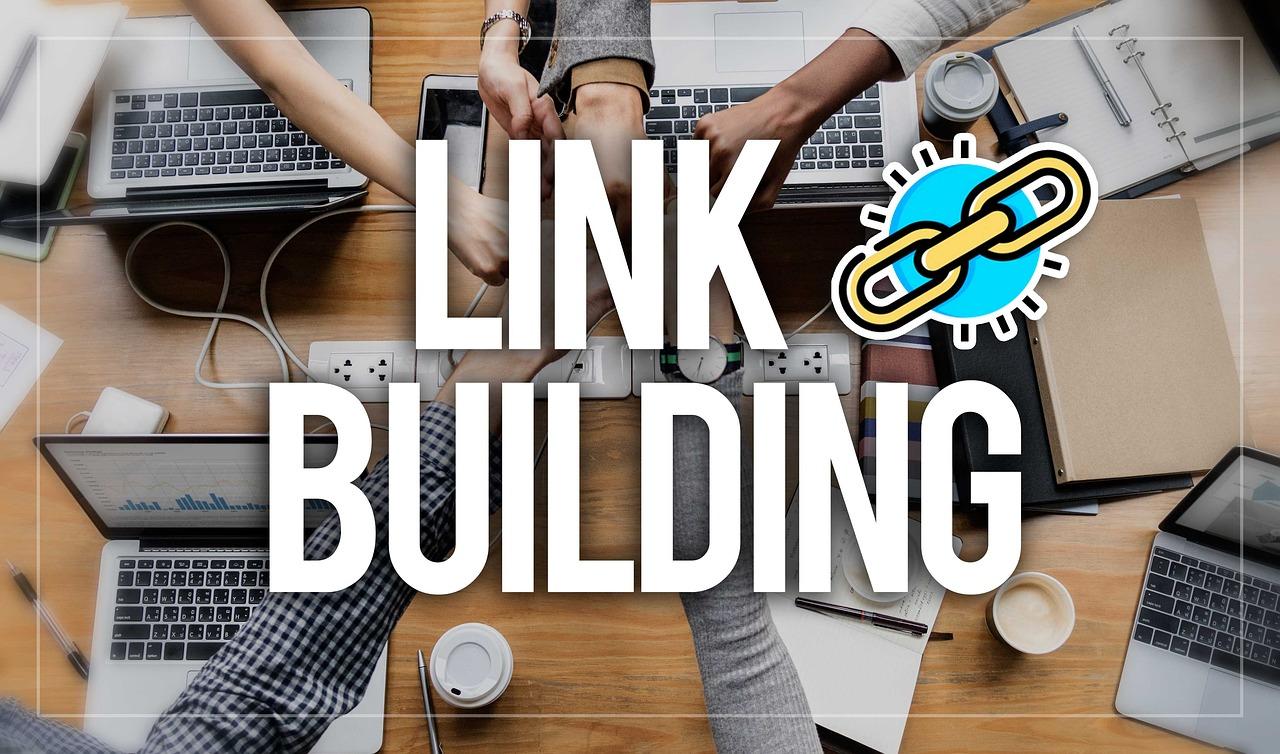
Tracking and Analyzing Your Link Building Efforts for Continuous Improvement
To truly harness the power of your link building efforts, it’s essential to implement a robust tracking and analysis system. Without understanding what works and what doesn’t, your strategy may become a shot in the dark. Here are some key methods to ensure you’re on the right path:
- Set Clear Goals: Before you can analyze your efforts, define what success looks like. Are you aiming for increased traffic, improved domain authority, or higher conversion rates? Setting specific goals will guide your analysis.
- Utilize Analytics Tools: Leverage tools like Google Analytics and Ahrefs to monitor the effectiveness of your link building campaigns. These tools can provide insights into traffic sources, referral links, and user behavior.
- Monitor Keyword Rankings: Keep an eye on how your targeted keywords are performing. Tracking shifts in rankings can help you determine if your link building efforts are positively impacting your SEO.
- Analyze Referral Traffic: Look into which backlinks are driving traffic to your site. Identifying high-performing links allows you to replicate successful strategies in future campaigns.
Establishing a system for regular analysis will help you uncover patterns that can guide your future link building strategies. Consider creating a simple tracking spreadsheet or using project management tools to keep everything organized:
| Link Source | Link Type | Traffic Generated | Keyword Ranking Improvement |
|---|---|---|---|
| Blog Post A | Guest Post | 150 visits | +5 positions |
| Directory B | Directory Submission | 50 visits | No change |
| Forum C | Forum Post | 75 visits | +2 positions |
| Social Media D | Social Share | 200 visits | +10 positions |
Once you have data in hand, it’s time to interpret it. Look for trends over time and assess which tactics are yielding the best results. Here are some things to consider:
- What types of content attract the most backlinks? Identifying your most link-worthy content can help you focus on similar topics.
- Which platforms drive the most traffic? Understanding where your audience engages can help you prioritize your outreach efforts.
- Are there patterns in referral traffic sources? This could reveal opportunities for partnerships with websites that align with your brand.
don’t forget to iterate. Based on your analysis, adjust your link building strategy as needed. If a particular tactic is falling flat, pivot quickly to explore new avenues. Continuous improvement is the name of the game, and your link building efforts should be no different. Remember, the world of SEO is always evolving, and staying flexible is key to maintaining your rankings.

Staying Updated on SEO Trends to Enhance Your Link Building Strategy
In the ever-evolving landscape of SEO, staying on top of the latest trends is key to revamping your link building strategy. A well-informed approach enables e-commerce businesses to secure valuable backlinks that not only enhance visibility but also improve overall rankings. Here are some effective strategies to keep in mind:
- Engage with Niche Communities: Instead of casting a wide net, focus on building relationships within niche forums and online communities. This targeted engagement can yield high-quality backlinks from authoritative sources.
- Utilize Content Marketing: Create compelling, shareable content such as infographics, guest blogs, or how-to guides. High-quality content naturally attracts links, making it an essential part of any link building strategy.
- Leverage Influencer Marketing: Collaborating with influencers can help amplify your reach. Their endorsement can lead to more backlinks from their followers and enhance your site’s credibility.
- Stay Ahead with Data-Driven Insights: Utilize tools like Google Analytics and Ahrefs to track which types of content are earning the most links. Adjust your strategy based on these insights to optimize your efforts.
As search engine algorithms become more sophisticated, it’s crucial to adapt your tactics. Consider these additional points to refine your link building approach:
| Trend | Impact on Link Building |
|---|---|
| Mobile Optimization | Search engines prioritize mobile-friendly sites, so ensure your website is optimized to attract more backlinks. |
| Voice Search | Optimize content for voice queries to cater to this growing trend, potentially increasing link opportunities. |
| User Experience | Enhancing user experience can lead to higher engagement rates, which in turn can foster more organic backlinks. |
Don’t underestimate the power of local SEO. By building local citations and engaging with your community online, you can secure backlinks from local businesses and publications that are highly relevant to your audience. This not only boosts your link profile but also strengthens your brand’s presence in local search results.
Moreover, keep an eye on your competitors. Tools that analyze their backlink profiles can reveal untapped opportunities for your link building efforts. Reach out to the same websites that link to them, but ensure your pitch is unique and adds value to their audience.
Lastly, remember that link building is not just about quantity; quality matters more. Focus on acquiring links from reputable websites in your industry. A few high-quality backlinks can significantly enhance your rankings compared to numerous low-quality links. As you refine your strategy, always prioritize building genuine relationships and delivering value through your content.
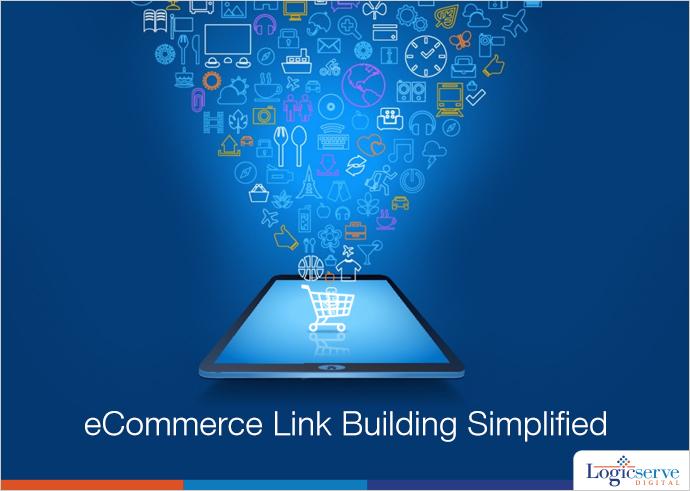
Conclusion: Turning Links into Lasting E-commerce Success
In the fast-evolving world of e-commerce, the importance of effective link building cannot be overstated. When done right, it not only improves your search engine rankings but also fosters relationships that can lead to increased brand visibility and customer trust. To truly capitalize on these opportunities, businesses must shift their mindset from merely acquiring links to building a robust online presence.
One of the most effective tactics is to focus on creating valuable content that naturally attracts links. Engaging blog posts, informative infographics, and captivating videos can all serve as link magnets. When you provide genuine value, others are more likely to reference and share your content, generating organic links. Remember, high-quality content is the backbone of an effective link-building strategy.
Additionally, networking with industry influencers can open doors to new link opportunities. Collaborate on projects, guest blog, or engage with them on social media. Building authentic relationships not only enhances your credibility but also increases the chances of gaining backlinks from reputable sources. This approach helps you tap into their audience, creating a win-win scenario.
Moreover, consider leveraging local SEO tactics. Participating in local events or sponsoring community activities can yield backlinks from local news sites and blogs. This local relevance not only boosts your link profile but also helps in connecting with your target audience on a more personal level. Don’t underestimate the power of your local community in driving traffic to your online store.
Another effective method is to analyze your competitors’ backlink profiles. Use tools like Ahrefs or SEMrush to identify where they are getting their links. This insight can guide you in crafting your outreach strategy. Identify gaps or opportunities that your competitors are missing, allowing you to capitalize on areas where you can outperform them.
To further enhance your link-building efforts, diversify your link sources. Aim for a mix of dofollow and nofollow links, as well as links from various domains. This diversity not only makes your link profile appear more natural to search engines but also broadens your exposure across different platforms and audiences.
As you implement these strategies, don’t forget the importance of tracking and measuring your results. Use tools like Google Analytics and Google Search Console to monitor your traffic and rankings. Adjust your tactics based on what works best, continually refining your approach to link building as you gain insights into your audience’s behaviors and preferences.
Your journey toward e-commerce success is ongoing, and link building plays a crucial role in that journey. By focusing on quality, building relationships, and leveraging data, you can turn those links into lasting assets for your business. As you cultivate these connections, remember that each link is not just a pathway to your site but also a bridge to your brand’s future growth.
Frequently Asked Questions (FAQ)
Sure! Here’s a Q&A that fits your criteria for the article titled “9 E-commerce Link Building Tactics That Actually Improve Rankings.”
Q1: Why is link building important for e-commerce websites?
A1: Great question! Link building is crucial for e-commerce because it helps improve your site’s authority and visibility in search engines. When reputable sites link to your pages, search engines see your site as more credible. This can lead to higher rankings, which means more potential customers finding your products. Simply put, the more quality links you have, the better your chances of standing out in a competitive online marketplace!
Q2: What are some effective link building tactics for e-commerce?
A2: There are several tactics that can work wonders! Here are a few you might consider:
- Guest Blogging: Write articles for other websites in your niche. Not only does this build your authority, but you can often include a link back to your site.
- Product Reviews: Reach out to bloggers or influencers to review your products. Their backlinks can drive traffic and boost your credibility.
- Creating Shareable Content: Think infographics, how-to guides, or industry reports. When your content provides value, others are more likely to link to it.
- Collaborating with Other Brands: Teaming up for giveaways or co-branded content can lead to valuable backlinks from both audiences.
Q3: How do I find websites to target for link building?
A3: Finding the right targets can be a game-changer! Start by researching your competitors’ backlinks using tools like Ahrefs or Moz. Discover where they’re getting links and see if you can get a share too! Additionally, look for industry-specific blogs, forums, and social media groups. Building relationships in these spaces can open doors to valuable backlinks.
Q4: Is there a way to measure the success of my link building efforts?
A4: Absolutely! You can track your progress by monitoring your search rankings and organic traffic. Tools like Google Analytics can help you see if your traffic is increasing after implementing link-building strategies. Additionally, keep an eye on your domain authority with tools like Moz or Ahrefs to see if it’s climbing as you build links.
Q5: Can link building really improve my rankings quickly?
A5: While some tactics can yield quicker results, effective link building is often a long-term strategy. It’s about building relationships and credibility over time. Consistency is key! The more quality links you acquire, the more your rankings will improve. Think of it as planting seeds; with patience and care, you’ll eventually reap the rewards!
Q6: What common mistakes should I avoid in link building?
A6: Excellent question! Here are some pitfalls to watch out for:
- Buying Links: This can lead to penalties from search engines.
- Low-Quality Links: Focus on quality over quantity. A few links from reputable sites are far better than many from spammy sites.
- Ignoring Anchor Text: Use relevant keywords in your anchor text to make links more effective.
- Being Too Promotional: Build genuine relationships rather than just asking for links. Authenticity goes a long way!
Q7: How often should I focus on link building?
A7: Link building should be an ongoing effort! Even after you’ve established a solid foundation, it’s important to keep forging new connections and generating links. Make it part of your regular marketing strategy – perhaps set aside a few hours each week to dedicate to outreach and content creation!
Q8: Any final tips for success with e-commerce link building?
A8: Absolutely! Stay persistent and be patient. Link building isn’t an overnight success story. Keep refining your tactics, focus on creating valuable content, and always be open to collaboration. Building a strong network can lead to unexpected opportunities down the line. Remember, the goal is to create a community around your brand!
Feel free to tweak any of the responses to better fit your article’s style!
Key Takeaways
As we wrap up our journey through these nine powerful e-commerce link building tactics, it’s clear that the foundation of a successful online store goes beyond just having great products. By strategically building your website’s authority through effective link building, you’re not only improving your rankings but also enhancing your brand’s visibility and credibility.
Remember, link building is not just a task; it’s an ongoing strategy that requires creativity, persistence, and a little bit of finesse. Whether you’re reaching out for guest posts, leveraging partnerships, or crafting shareable content, every link you earn is a step closer to dominating your niche in the e-commerce space.
So why wait? Start implementing these tactics today and watch as your rankings climb and your customer base grows. Your competitors are already on the move—make sure you’re ahead of the game! If you have any questions or want to share your own link building success stories, drop a comment below. Happy linking!



